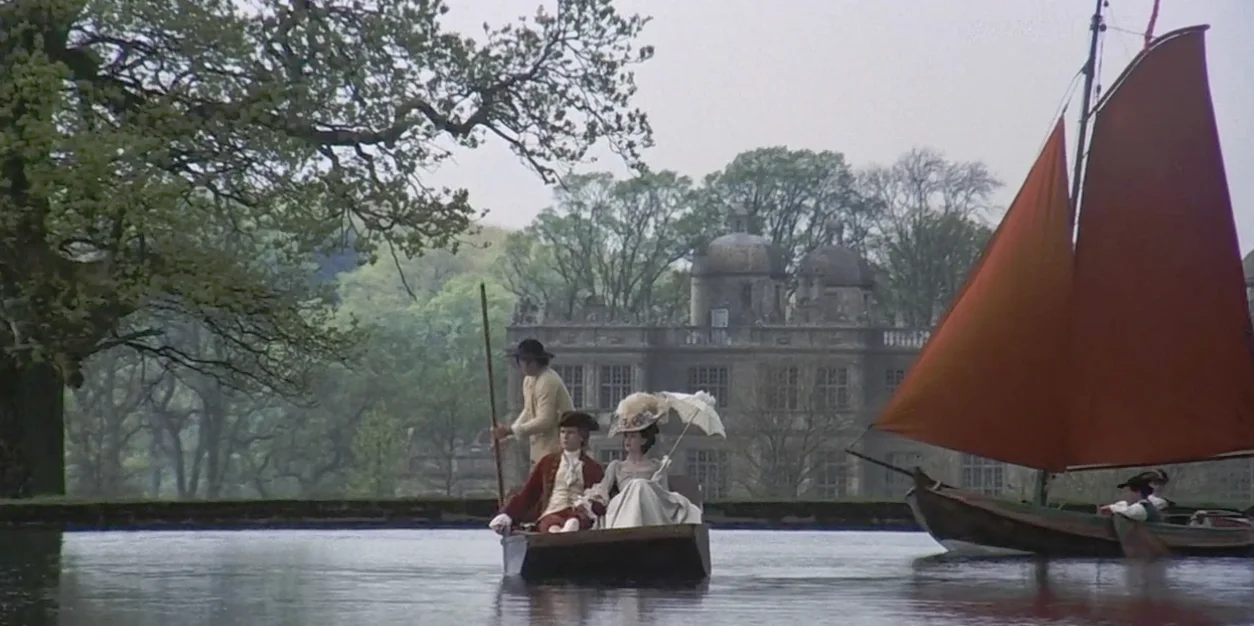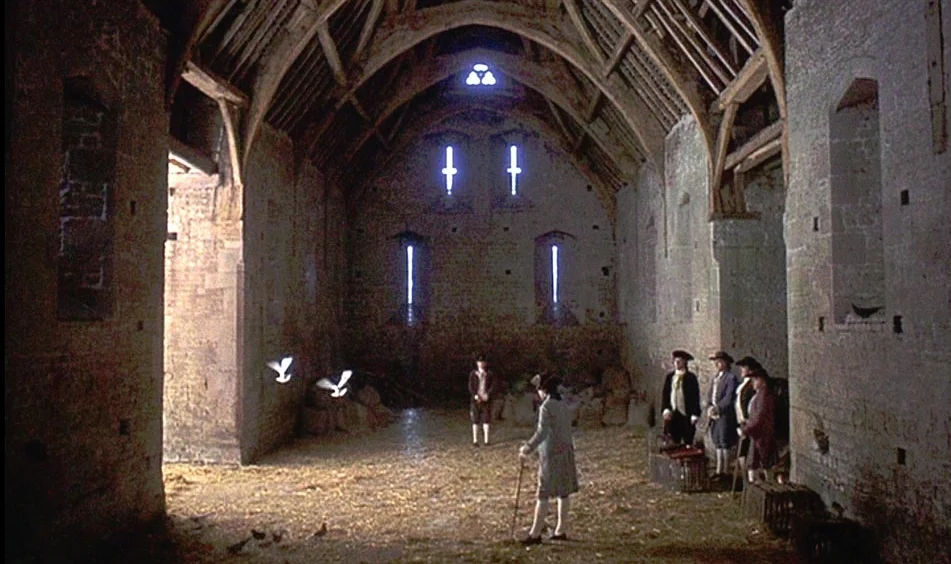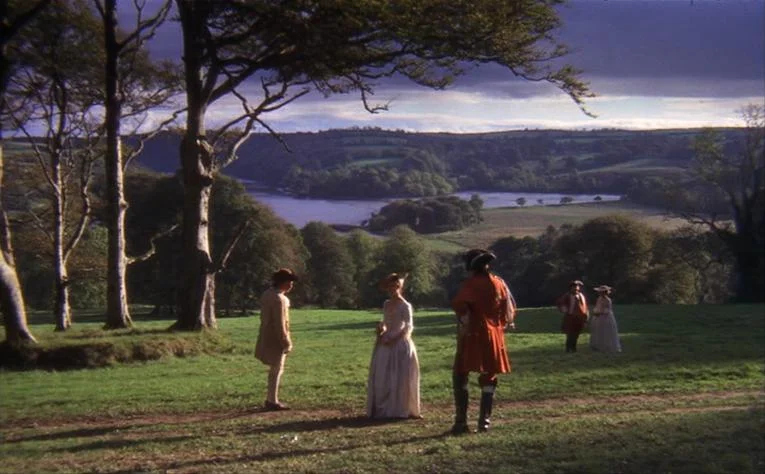Barry Lyndon | 1975
/After years of being the "one that got away" in Stanley Kubrick's filmography, I finally sat down last night with the newly released Blu-ray of BARRY LYNDON, ready to get my 18th century costume drama on. The piece that managed to push me over the edge and take the plunge was the lengthy post/comment frenzy concerning the proper aspect ratio for the film over on Glenn Kenny's blog Some Came Running (although calling it a "blog" is a bit of a disservice; this is a blog - Some Came Running is an equal parts scathing/illuminating master class in every aspect of this behemoth we call FILM). This being my first exposure to the film, I was curious to see if I had any feelings regarding the 1.78 "full widescreen" presentation of the film versus the argued correct framing of 1.66. I also wanted to see why I was seemingly avoiding this film for so many years.
Regarding the transfer and aspect ratio: maybe it comes from the almost severe widescreen presentations of two other recently viewed Kubrick films: A CLOCKWORK ORANGE and 2001, but something feels a little "off" about the film. It certainly didn't bother me to watch it, since I had nothing to compare it to, and perhaps if I hadn't read all the hullabaloo online I might never had noticed anything was potentially amiss. If you've see the film before and you're a fan, you should definitely check out the new version and see what your thoughts are. Besides that, I thought the transfer itself was mostly gorgeous. There are huge sections of the film that look like they were filmed this year, and it's a credit to Kubrick and cinematographer John Alcott (who also shot A CLOCKWORK ORANGE) that they can render a film timeless so effortlessly. Other sections appear soft and gauzy, though I think this is a purposeful effect stemming from Kubrick's attempt to at all times use natural lighting, often candles alone lighting a scene. So all in all, pretty stunning, which is par for the course in a Kubrick film.
The film itself is very good, although I can definitely see a disconnect for people who relish the starker, more haunting images found in films like THE SHINING, FULL METAL JACKET and A CLOCKWORK ORANGE. Although all his films exist in a very deliberately paced style, BARRY LYNDON, at just over three hours, almost presses its luck. "Almost" being the operative word, because the story of the rise and fall of Redmond Barry, Irish rouge and ladies' man, who wants nothing more than to stand on equal footing with the various lords and gentlemen he comes into contact with, is very engaging and, surprisingly, hilarious at times. Based on the novel by William James Thackery, the movie succeeds in the challenge of making you care for a hero who is basically despicable. You don't necessarily root for him, but you're not begrudging him his due, either.
A lot of credit goes to Ryan O'Neal, who at the time must have seemed an odd choice to lead a Kubrick film (although in hindsight no more so than Matthew Modine in FULL METAL JACKET), but he plays it just right, alternating between childish cad and virile ladykillers when the situation calls for it. It doesn't hurt that he's surrounded by a great supporting cast, including Patrick Magee as his mentor/partner in crime and Leon Vitali as the grown Lord Bullingdon, Barry's stepson and nemesis. He's a revolting character, but you can't hep but see he's in the right even as he's an utter prick the entire time he's on screen.
The film opened with a duel that serves to introduce Barry to the story, so it's fitting that it's a duel that ends his story, although not in the way you could ever guess. A witty epilogue explains how Barry Lyndon finally becomes equal to those whose acceptance he so desperately wanted (though would never put the effort in to actually earn), and while it's not my new favorite Kubrick, it's a wonderful must-see film for anyone whose only exposure to the director is through his more well-received films.
Regardless of aspect ratio.




